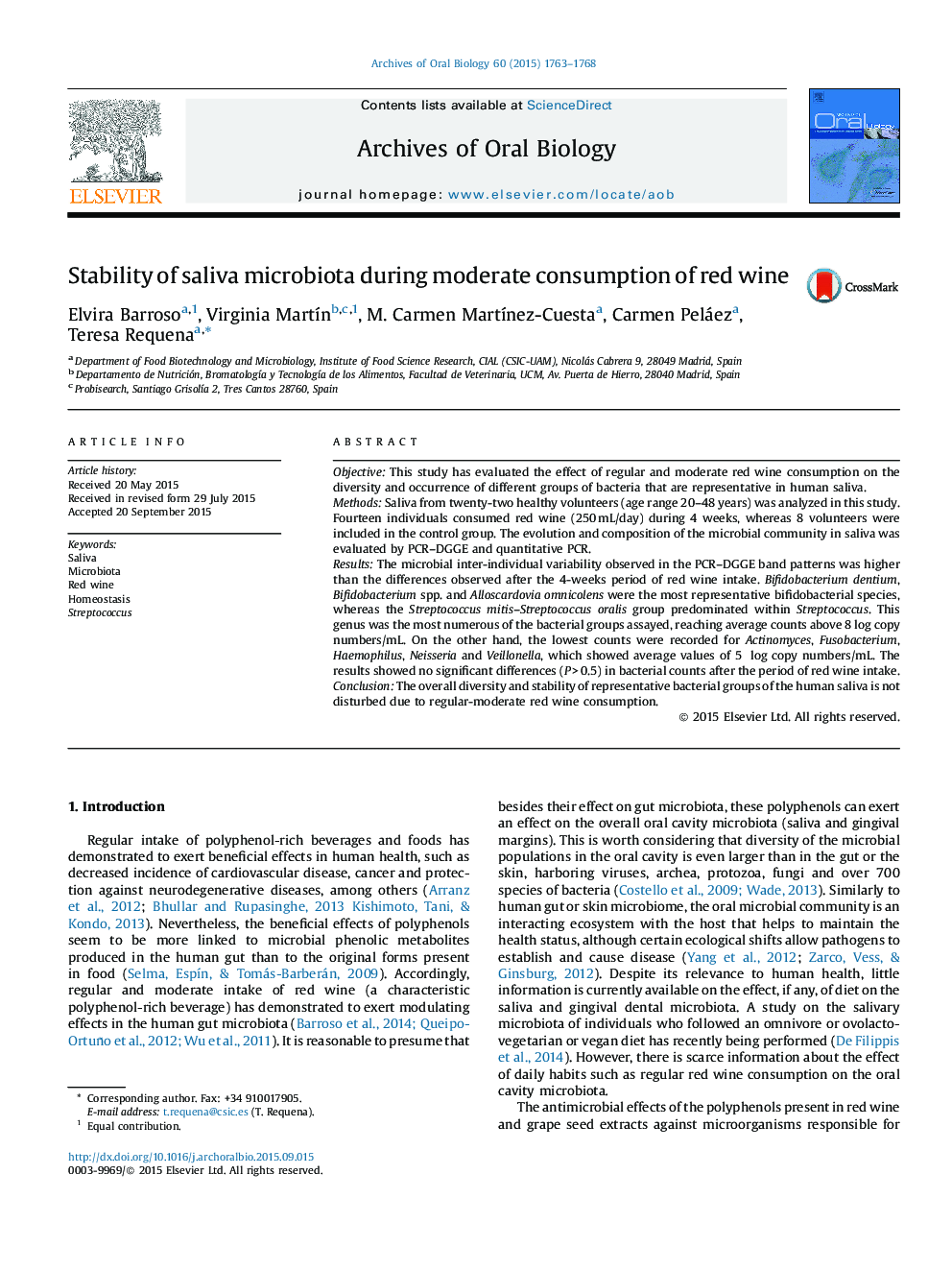| Article ID | Journal | Published Year | Pages | File Type |
|---|---|---|---|---|
| 3120641 | Archives of Oral Biology | 2015 | 6 Pages |
•We evaluate the effect of red wine intake on human saliva microbiota.•Representative bacterial genera are common in saliva from all volunteers.•Inter-individual variability of saliva microbiota surpasses the wine intake effect.•Stability of the human saliva microbiota is not disturbed by red wine consumption.
ObjectiveThis study has evaluated the effect of regular and moderate red wine consumption on the diversity and occurrence of different groups of bacteria that are representative in human saliva.MethodsSaliva from twenty-two healthy volunteers (age range 20–48 years) was analyzed in this study. Fourteen individuals consumed red wine (250 mL/day) during 4 weeks, whereas 8 volunteers were included in the control group. The evolution and composition of the microbial community in saliva was evaluated by PCR–DGGE and quantitative PCR.ResultsThe microbial inter-individual variability observed in the PCR–DGGE band patterns was higher than the differences observed after the 4-weeks period of red wine intake. Bifidobacterium dentium, Bifidobacterium spp. and Alloscardovia omnicolens were the most representative bifidobacterial species, whereas the Streptococcus mitis–Streptococcus oralis group predominated within Streptococcus. This genus was the most numerous of the bacterial groups assayed, reaching average counts above 8 log copy numbers/mL. On the other hand, the lowest counts were recorded for Actinomyces, Fusobacterium, Haemophilus, Neisseria and Veillonella, which showed average values of 5 log copy numbers/mL. The results showed no significant differences (P > 0.5) in bacterial counts after the period of red wine intake.ConclusionThe overall diversity and stability of representative bacterial groups of the human saliva is not disturbed due to regular-moderate red wine consumption.
